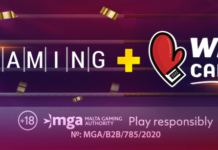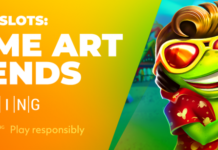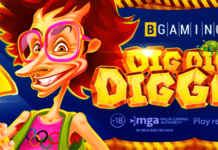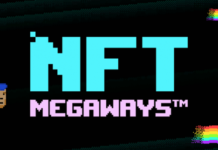![]()
The necessity of building and maintaining a strong network is a familiar construct among numerous industries, and is certainly one that is not lost in the gaming community.
However, among the multitude of strategies and expert tutorials in how best to achieve such a goal, is the question of: how much do you know you network? With this in mind, CasinoBeats is aiming to take a look under the hood, if you will, and has tasked the 100 Club to help out.
Our next participant is Victoria Bonner, head of marketing at Relax Gaming, who looks back on an unexpected path towards gaming, the journey towards oversaturation, and the ongoing influence of streaming.
CasinoBeats: Could you begin by talking us through any past experiences that have been gained outside of the gambling industry? Could your career have taken any different paths?
Victoria Bonner: I suspect it’s quite common but I didn’t set out with a mind to work in gaming. There were a number of small steps that set me on this path and made it a natural segue. Namely working in finance communications in London with a background in B2B and B2C tech, including Google’s London and German press office.
Regulated markets were a familiar landscape and, before I left the UK, I’d had touch points with betting companies via agency and freelance work. My first job in gaming was almost an accident, I’d interviewed without any expectation of relocating but the opportunity was good and things just fell into place.
Perhaps my first interest in online games was back in 2001, I owned and ran playleagues.com, the largest international monopoly gaming league as a side project. It wasn’t real-money but it featured leaderboards and its own online currency that could be exchanged for prizes with a tiered membership structure.
In hindsight, it was well ahead of its time and at its peak had around 10,000 active players. As most were in the US, there were a lot of late nights running tournaments and managing around 30 staff. The UK was still on dial up, while most of the players had migrated to broadband and that had its challenges as well.
It quickly became a hyper-competitive space moving from two to 150 leagues in under a year. We retained the edge though remaining the largest player until I gave it up in 2003.
CB: What was it that eventually led you into this industry?
VB: The blend of corporations within gaming is truly fascinating and ultimately that was the appeal. The mix of new breed and ambitious tech start ups, CEOs often sporting flip-flops in business meetings, along with some real heavy-weight brands that have stood the test of time means there are valuable lessons to take from all sides.
That make up is perhaps a little reminiscent of banking but with far more players and the rise and falls can be fast and fairly dramatic. Factor in the M&A moves and it’s an industry that doesn’t lack drama.
You can’t stand still and retain market share and it’s easier for some more than others to respond to necessary changes, being agile is a huge advantage but I’d rank the vision and planning based on good anticipation of where the industry will be near to long-term as the core to success. Tech moves fast, regulation poses challenges, being able to adapt can produce great opportunities.
Software updates for mobile customers and the fragmented regulatory landscape push B2B and B2C operations to pivot, react and push through developments at a pace that other industries just don’t see.
Priorities on a project-level change constantly, so strong leadership and strategy is vital to navigate distractions and retain focus. Those that do actually innovate rather than talking about it are testimony to the tenacity and skills that exist within gaming, and also it’s appeal.
Initially, I was headhunted from London to move to Gibraltar for a well-funded start up that was technologically well ahead of anyone else. It was an aggregator, had predicted the shift to HTML5 and gone all in. They were right but, regrettably, the much needed hit game didn’t come along fast enough.
They offered a Ferrari solution though and that technology still exists, sadly the company doesn’t. Those were a few very exciting years with very talented colleagues and many of the former employees still meet and reminisce about those years.
It was a great example of a company where everyone was motivated and pulling in the same direction with the same goals. Little division internally that I ever saw and a shining example of how to get the best out of your people.
It built solid and lasting relationships that kept most of us in gaming, with a vast majority of those people having gone on to do very well for themselves and their subsequent companies/employers. When they eventually conceded and closed the doors, there was a lot of very genuine heartache even from those that had moved on some time previously.
I moved from there to NetEnt and Malta, the role wasn’t overly challenging but I can’t fault NetEnt for being a great employer at that time. From there I took a head of role for a studio that wasn’t very well known.
It was a go in and set up from scratch role, similar to my first one. That company now headlines on many operator’s front pages and is an established name. The strategy was different and approach sometimes offbeat. Sometimes being different can polarise but ultimately it set them up well for success.
For the last three years I’ve been at Relax Gaming, another marketing set-up-from-scratch role for a company that’s now very well regarded, has strong content, partners and a solid reputation.
I started with one designer and pretty much a blank sheet in terms of marketing. There’s now a phenomenal team in place, each with their own strengths, and I’m very proud of what we’ve collectively achieved.
CB: How would you assess your progress through the industry to date? Are there any interesting anecdotes that would interest our readers, or any stand out experiences that may not have been possible without the current, or a past, role?
VB: In addition to the above, in some way I think the impact that first job had is probably the widest reaching. Game of the year didn’t exist within the industry prior to my role at Odobo almost a decade ago. The content space was starting to get cluttered, the duration of a featured game on any operator site was starting to decrease and cut-through was becoming more challenging.
Nothing like it is today but the initial steps towards oversaturation were there. Arguably it’s testament to the fact that the early stranglehold a few massive suppliers had, has long-since past and opportunities are very real for new studios.
That is if they can reach a sufficient level of distribution quickly enough by navigating the lead times for integrations, then manage compliance, sales and properly fund enough productions to make them interesting before they need to realise significant ROI.
Game of the year was introduced in my first year with the full intention of it being seen by operators. We created it as a sponsorship opportunity, sold the idea to a media partner and it’s grown into an industry-wide standard.
I’m genuinely pleased that content has a place to be recognised. So much goes into a production, that highlighting the studios that are doing it well is absolutely warranted. There’s always some leftfield winners but mostly good games at least get a nod in terms of nominations. It hasn’t changed the world but it does give studios another opportunity to highlight their best work.
Another tangible impact is the wide adoption of B2B tournaments. Running events at NetEnt I couldn’t get on board with people standing around with no focal point. The technology didn’t exist internally to run a tournament the first time I wanted it, so we set up a video game session with a relevant tie in and prizes to get a bit more engagement going.
By the next event the system was live and we were able to provide a touch point and interaction with the product being promoted and enjoy the competitive nature of our guests. It was logical based on other industries I’d worked in – we wouldn’t have run an event for a consumer tech product without showcasing the product.
Yes come and drink and talk about our content but that’s not the same as getting hands on with the game and, if an incentive was needed, we were happy to do that. These tournaments have since became commonplace and that’s not likely to change.
Other highlights are more specific but inclusion in last year’s Hot50 was humbling, marketing is instrumental whichever aspect of the industry you specialise in, so there were no shortage of quality candidates for that nod.
This year, I’ve been nominated for the female success spotlight and that’s an honour too. There’s a lot of opinions about these kind of things but ultimately this is run by a people that are pushing the right messages and I’m fully on board with that.
On the direct work front, gaining positive front page mainstream media coverage in Malta for a studio (I believe for the first time) with a dinosaur arriving through an airport would be another highlight.
Those are fun things to do anyway and there’s usually a nod of appreciation even from competitors when you do something well. I enjoy that, it’s a close industry for better and worse and not lacking in camaraderie when it’s due.
CB: What would you say have been the major changes during your time working in the industry? Both for the better and worse.
VB: On the B2B side it’s definitely content cut-through. Games just don’t get the airtime they used to as volume continues to increase. It’s a churn industry and many titles fail, not because they aren’t good games but because they don’t benefit from discovery. Games need time and reach to become familiar and financially rewarding, some studios manage that well, others less so.
The goal being to become part of a player’s standard session routine and become truly sticky. It used to be the case that with the right content and contacts, you could get a two week site takeover to promote a game.
As operators have been less able to offer more than a few days of promotional activity on key titles or inclusion in their direct mail efforts, avenues for promoting games directly without B2C budgets are limited for most studios.
There’s a lot of criticism at the moment about streaming for instance but you can’t fault studios wanting to do their productions justice. Game development isn’t cheap. The debate has validity on both sides but, in reality, there’s the potential for benefits to both the player and the studio – if the production is good.
Being able to understand a game before you play for real money, shouldn’t be universally rejected as a bad thing, it isn’t. Studios putting their games in front of a live audience also have to be confident that the title is strong. It has the potential to backfire with a player never spinning a single round based on what they’ve seen.
It’s a driver to raise the bar on the quality of the content you produce, not to mention providing a real-time feedback loop for studios that they hadn’t had before. It can be thrilling or brutal but ultimately studios should take transferrable feedback into their next development cycle too.
So the debate should perhaps focus on what’s responsible and what’s not, what is pure entertainment and acceptable as such verses streaming with the core objective of driving traffic. Do those people play longer or is it just that they try titles they’re curious about in a more informed way during their usual play session before returning to their favourites. That’s important to understand.
So has streaming impacted game development and mechanics? certainly in some quarters. Is that a bad thing? Not necessarily if it leads to better games. The validity of streaming can only truly be assessed based on actual data about how the viewers actions/behaviour relate to what they watch.
So that’s perhaps what the focus of the debate should be and one that’s worth having. From a marketing perspective this is a valuable promotional tool, if you choose the right streams.





























